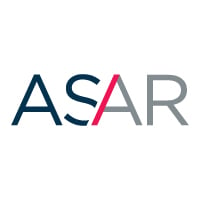

Chief legal officer | Diyar United Company



Talal Bijjani
Chief legal officer | Diyar United Company
Team size: Seven
Jurisdictions your role covers: GCC region
Bio
With over 20 years of experience in corporate law, financial regulation, and complex commercial advisory, Talal Bijjani currently serves as the Chief Legal Officer at Diyar United Company, a leading regional player in technology and digital transformation. In this capacity, he not only leads the legal function but also plays a pivotal role in advising the Board of Directors and executive leadership on governance, regulatory, and strategic matters. He oversees corporate governance, risk management, and regulatory compliance while driving high-value contractual negotiations across multiple jurisdictions. His guidance ensures that Diyar’s strategic objectives are aligned with sound legal and business practices, safeguarding the company’s long-term interests.
Before joining Diyar, Talal was a Partner at Ahkam Law Firm, where he advised leading regional and multinational corporations on corporate structuring, cross-border transactions, M&A, and regulatory compliance. His track record included advising on board-level decisions and landmark commercial deals, where he became known for blending rigorous legal expertise with practical commercial and strategic insight.
Previously, he served as a Senior Associate at ASAR, one of the most prominent law firms in Kuwait, where he developed expertise in corporate, banking, finance, and public–private partnership matters. This period further deepened his understanding of complex financial transactions and multi-stakeholder projects.
Talal’s academic credentials further distinguish him as a legal thought leader. He holds a Ph.D. in Law with a specialization in securitization, as well as an LL.M. in Banking and Financial Law from Boston University. His academic background, combined with practical boardroom experience, allows him to bridge the gap between technical legal analysis and executive-level decision-making.
Throughout his career, Talal has been recognized for his ability to align legal strategy with business growth, advise boards on governance structures, and support executive teams in critical decision-making. His contributions extend beyond legal advisory, encompassing corporate strategy, dispute resolution, and regulatory advocacy. He has advised on regulatory changes impacting the financial and technology sectors and has been instrumental in guiding organizations through transformational shifts such as fintech adoption, compliance modernization, and corporate governance reforms.
In addition to his professional achievements, Talal has contributed to the legal and business community through mentoring juniors and students, publishing thought leadership, and participating in regional forums on governance, strategy, and the evolving role of in-house counsel. His reputation as a strategic advisor to boards and executives has positioned him as a trusted partner in shaping both legal frameworks and business strategies.
Talal Bijjani’s career reflects a trajectory of consistent growth, leadership, and strategic impact. As Chief Legal Officer of Diyar United Company, he continues to shape the company’s governance and compliance frameworks while advising its leadership on strategic initiatives that drive innovation and long-term success.
How do you approach managing legal aspects during periods of instability or crises, and how does your legal strategy align with the broader business strategy to ensure the organisation’s resilience?
At Diyar United, where our work spans mission-critical technology, infrastructure, and government projects, my approach to legal management during periods of instability is to create a proactive, technology-aware framework that anticipates potential risks before they materialise. This involves continuous monitoring of regulatory, contractual, and geopolitical developments across our operating markets, coupled with scenario planning tailored to the unique demands of the ICT and systems integration sector.
Our legal strategy is deliberately aligned with the company’s business strategy by ensuring that contractual protections, compliance controls, and dispute-avoidance measures actively support operational continuity and client delivery commitments. For instance, during recent global supply chain disruptions, my team worked closely with procurement, project delivery, and vendor management to renegotiate terms, introduce technology-specific performance safeguards, and adjust implementation milestones, preserving strategic partnerships while protecting project profitability and client trust.
In a crisis, the legal department becomes a central command point, providing clear, timely, and commercially minded guidance to senior leadership and operational teams. This ensures that all decisions are both legally compliant and strategically sound, enabling Diyar United to maintain service delivery and uphold our reputation as a reliable partner, even under challenging circumstances.
What are the major cases or transactions you have been involved in recently?
Recently, I have led the legal work on several high-value technology infrastructure projects across the GCC, including strategic partnerships with global technology providers and cross-border licensing arrangements. One of the most notable matters was negotiating a multi-jurisdictional technology integration agreement involving sensitive data protection considerations, export control compliance, and complex intellectual property licensing.
Additionally, I oversaw a corporate restructuring within our group, aligning multiple subsidiaries under a unified governance framework, which streamlined compliance obligations and improved operational efficiency across our jurisdictions.
What factors influence your team’s decision to use external legal services versus handling matters in-house, and what criteria are used to evaluate their performance?
We rely on a clear decision matrix. Matters requiring deep familiarity with our business model and day-to-day operations—such as contract negotiations, compliance monitoring, and internal policy development—are handled in-house. Conversely, we engage external counsel for highly specialized matters, such as cross-border disputes, regulatory approvals in unfamiliar jurisdictions, or complex litigation.
Performance evaluation of external legal advisors is based on four key criteria. First, their expertise and specialization, particularly the depth of subject-matter knowledge relevant to the specific case or issue. Second, their responsiveness and communication, assessed through the clarity, timeliness, and accessibility of their interactions. Third, their commercial awareness, reflected in their ability to deliver legal solutions that are aligned with our business objectives. Finally, value for money is a critical factor, measured by the cost-efficiency of their services without compromising on quality.